The name is important. It’s the first thing of any product you use or buy or see. The tip of the spear. You are bombarded by thousands of names every day.

In this daily barrage, only the names that are most interesting and most pleasant on the tongue can survive in your memory. So it’s no surprise that companies—especially large ones like Sony or Procter & Gamble—hire naming companies.
That is, there are companies that come up with names for things. Cars, lines of yogurt, iPhone apps, small businesses, sodas, movies, and even theories have all been named by professionals.
Now, we’ve all come up with names before—for pets, or children, or bands, or blogs. But when it comes to designing a name for a business or a product, there are a number of additional factors to consider.
Case Study: Photoshop Elements
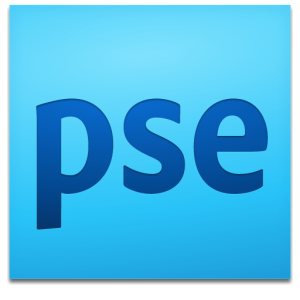
The word “Elements” took a lot of work.
Photoshop was looking to market a less-expensive version of their software, which they wanted to market as having all the capabilities of regular Photoshop but without many of the “bells and whistles.” Adobe hired Oakland-based naming company Catchword to come up with something. Catchword went through a month-long exploration of every word that might apply: “essentials,” “basics,” “light,” etc., but they all sounded compromising. Finally, they came across Elements, which implies both simplicity and necessity; the parts that are basic but important.
(Catchword, by the way, got its name from the guiding words at the top of the dictionary pages. Those are the catchwords.)
There are really only a handful of businesses that deal exclusively in names, and their services can cost thens of thousands of dollars. In addition to coming up with names, they also determine what names are available for trademark, which URLs are available, and they conduct linguistic checks to ensure that potential names are pronounceable, unique, and appropriate in languages around the world.
Linguistic checks can be vital: Catchword was once naming a toy and one of the names they had come up with for it turned out to mean “a small device that doesn’t work” in Japanese. So they ruled that option out.
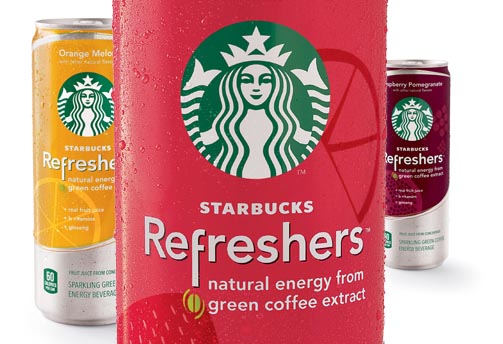
More than anything else, Catchword just produces a ton of names. They see a direct relationship between quantity and quality, and casually remark that the first 500 names anyone comes up with are going to be obvious and uninteresting. Catchword will generate more than 2000 names per client, 30 to 50 of which they will present as viable options.
And they can come up with so many names because they make names across a naming spectrum:

At one end of the spectrum you have descriptive names, which just describe what the thing is—like Raisin Bran, and Shredded Wheat.
Descriptive names can be great because they’re self explanatory. But they are also hard to own. In fact, neither Raisin Bran nor Shredded Wheat is trademarked. Anyone can make a cereal and call it raisin bran or shredded wheat.
The other big drawback to descriptive names is that they can be limiting. National Public Radio changed its name to NPR so that they wouldn’t be limited to just one medium.
Descriptive names contributed to the downfalls of a lot of specific start-ups in the ’90s, like estamps.com, which had trouble expanding services beyond its name.
All the way on the other end of the spectrum are so-called “Arbitary” names, which don’t tell you anything about the product or service. Like Apple.
Arbitrary names allow for flexibility—in Apple’s case, they used to only make computers, the name allows them to make anything.
Arbitrary names can also be completely made up. These kinds of names are called “empty vessels.” Names such as Hulu, Exxon, and Kodak mean nothing on their own, and were largely chosen because they are short, unique, and sound appealing.

Arbitrary names and empty vessels are easy to trademark, easy to get the domain name for, and are usually good in languages around the world.
Drawback: they are hard to market. You have to put a lot of money behind these kinds of name to tell people what they mean. You would have no idea what Amazon sells or does if they didn’t have the budget to tell you about all their services.
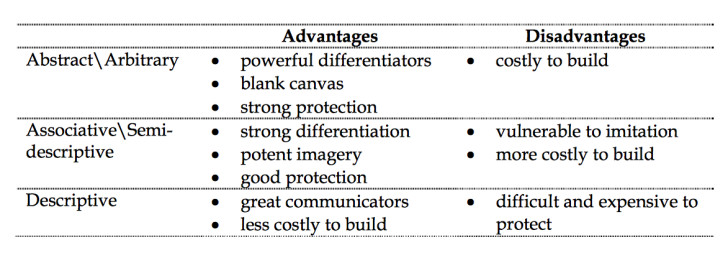
Most names fall somewhere in between the two poles of descriptive and arbitrary names. These are “semi descriptive” or “suggestive” names. Like Microsoft, which kind of says “software for microcomputers,” but not explicitly. Microsoft is a “coined word”—a word that doesn’t exist in an english dictionary, but is made up of familiar words, word parts, or sounds. Spotify, Nespresson, and Netflix are also coined words. They sound like English words but they’re not.
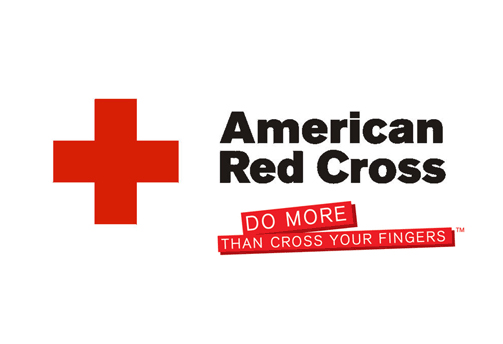
A few miles away from Catchword is another naming company called A Hundred Monkeys. (A Hundred Monkeys got its name from the idea that if you put a hundred monkeys in front of a hundred typewriters, you’re bound to get a good name. It’s a joke about the process.)

A Hundred Monkeys doesn’t make coined words or empty vessels. They prefer to come up with names based around a narrative: ones inspired by anatomical charts, constellations, secret service codenames, rundown theaters, types of wind and ocean currents. They strive for names that lead to conversation. They have named Front Porch Senior living communities, The Lot (Rhode Island’s state lottery), and Start Here Microsoft Windows tutorial. They also named Conditioned Hypereating, a theory for how fast food companies design food to make it irresistible.
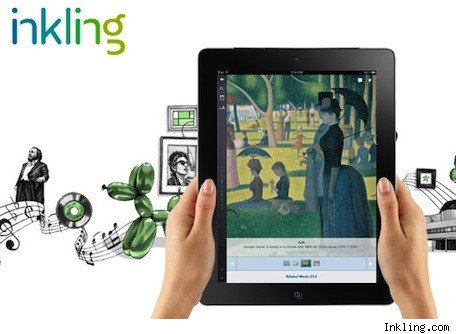
Rather than a naming spectrum, A Hundred Monkeys sees more of a sort of name taxonomy, in which classifications break down into 25 categories of names. Some examples:
- Names of real people (Tesla Motors, Jack Daniels, Newman’s Own)
- Names of imaginary mascots (Jolly Green Giant, Dr. Pepper, Captain Morgan)
- Americana names (Baby Ruth, Dixon Ticonderoga, 76 Gasoline)
- Mythical names (Nike, Pandora, Hermes)
- Foreign-feeling names (Clinique, Häagen Dazs, Tazo)
- Lifestyle statement names (Forever 21, True Religion, LiveStrong).
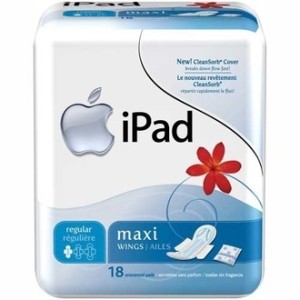
The takeaway is this: if you have enough money, the name can be anything. When the iPad was about to come out, everyone thought it was a really silly name. You heard all kinds of sanitary napkin jokes.
Now, through sheer force of will and advertising dollars, you don’t think twice about the word “iPad.”
But some names are just unsalvageable.
We asked both companies we spoke with to come up with names for the episode. Here’s what they sent us:
Catchword: For Name’s Sake; Kickin’ Ass and Makin’ Names; Name, Set, Match; Names In Lights; Nerds of Naming; Nerds of Words; The Dub Hub (Or, Dub Steps, though it is less transparent); The Game of the Name; The Name Changers; The Name Droppers; The X Names; You Name It (or Rather, They Do)
A Hundred Monkeys: Namesake; By any other name; Call it like it is; Name dropping
And yes, Clem, it turns out you were right. Blue Ruin. Someone’s got that job.




Comments (26)
Share
So naming things isn’t as easy at Mitch Hedberg says it is?
http://www.youtube.com/watch?v=0lwpS5M7hgA
That was my first thought, too. :) Well done.
Great episode. The project name mention always reminds me the Carl Sagan – Apple project name debacle in the early 90s.
http://www.lettersofnote.com/2012/03/butt-head-astronomer.html?m=1
Loved Broken Social Scene and Arcade Fire. Only when I heard it a second time (great episode) I found the Eternal Sunshine clip in the end. Awesome.
Could you please list the music? :-)
Very interesting episode. A small quibble: it’s my understanding that Kodak is not just a made-up word, but instead an onomatopoeia representing the clack of old camera lenses snapping a photo.
Brendan, the idea that “Kodak” was chosen for its similarity to a camera shutter sound is an urban legend. When asked about it, George Eastman, who came up with the name, said “Philologically, the word Kodak is as meaningless as a child’s first ‘goo’—terse, abrupt to the point of rudeness, literally bitten off by firm and unyielding consonants at both ends, it snaps like a camera shutter in your face. What more would one ask!”
Yay for a Breeders song reference!
You brought up Hulu during the episode. While the official story is that the word means some gourd filled with goodness (it actually does mean that), the real story is different. A list of all four letter words was made and “hulu” was chosen since it sounded good, is mostly meaningless and a matching domain can be easily acquired.
Thanks for the info on Hulu! I strongly suspected that was the case. A lot of names had a story retrofitted (Yahoo! is a good example) and it’s good to know that Hulu was pragmatically selected, originally.
whatever device you are using for streaming your audio, it doesn’t work right. keeps stopping&restarting and then it has to rebuffer all the way.
Whether they knew it or not, Hulu is NOT an “empty vessel” for paleoclimatologists. Hulu is the name of a Chinese cave where the historical strength of the East Asian Monsoon was (famously) reconstructed. Check out the paper here…
http://www.sciencemag.org/content/294/5550/2345.short
Since you are in San Francisco, next December, when the American Geophysical Union has its annual meeting at the Moscone Center, stop one of us on the street and ask us what we think “Hulu” means and we’ll tell you it’s a cave.
I have to know: what IS the Japanese term for “small device that doesn’t work”?
Andrew, it’s “kizumono”, which is usually translated as “defective article” and which we were told is often applied to small devices, like toys or electronics, that don’t work. It has another, less SFW meaning as well (you can Google it).
I think TK might come from ‘Koming’. I was taught that if you leave ‘Koming’ instead of ‘Coming’ to ‘To Come’, it will always be picked up by a spellcheck, meaning you won’t miss it before it goes out to publish.
Definitely. Also, “TK” is more search-unique. If you search your manuscript for “TK” you’ll find very little, whereas if you search for “TC” you could find “itch,” “watch,” “splotch”…
Good story here of this process in action: http://priceonomics.com/how-microryza-acquired-the-domain-experimentcom/
That is a wonderful story! Thanks so much for linking to it!
Great episode! I’ve heard now about 50 episodes or so, and this one I really liked!
This was an amazing episode for name nerds like myself. It’s great hearing people speak so enthusiastically about things I’ve always pondered and thought about.
Before the title of the podcast was described, I assumed it was referencing the hard/powerful-sounding letters mentioned earlier on in the podcast. Either works!
Great stuff!
This is a story for Roman, Laurel, and Avery: I don’t know who the naming company was. I work for a company called “Leidos” which is made up from the inner syllables of the word “Kaleidoscope”. We are a huge ($7B) “Government Systems Integrator” so perhaps one can understand why they thought it would imply “seeing things differently” and forgot that when one looks through a kaleidoscope everything is, well, jumbled up. I hold the naming company responsible for the error.
Eric, it looks like Interbrand came up with the name: http://www.washingtonpost.com/business/capitalbusiness/with-help-of-branding-agency-saic-narrowed-new-name-to-leidos/2013/03/08/a1721e66-84ea-11e2-98a3-b3db6b9ac586_story.html
Finding a name that was available both as a TM and a domain must have been tough – we had to do the same when we developed Keysight for the spinoff of Agilent. I wonder what the other 63 candidates mentioned in this article were!
Yes! I immediately thought of that scene from Eternal Sunshine when I saw this episode!
Xerox comes from xerography and xerostat – xero means dry and they were the first with a dry copy method.
I really enjoyed this episode. Even more initially shocking than the iPad was the name Nintendo “Wii”. I swore I’d never call it that, but now it is in everyone’s vocabulary. I’d be interested to hear your input on this and why they named the successor the “Wii U”
Exxon comes from Esso which comes from S.O. which was the abbreviation for Standard Oil. The name is the result of arbitration but it is not arbitrary.